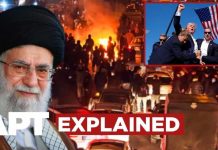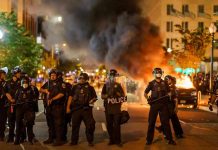
Federal surveillance networks are secretly monitoring millions of drivers across the nation, posing a serious threat to privacy and civil liberties.
Story Snapshot
- Nationwide surveillance program uses cameras and license plate readers to monitor drivers.
- Federal agencies, local law enforcement, and private companies collaborate in data sharing.
- Investigations reveal extensive reach beyond border areas, raising privacy concerns.
- Technology and predictive analytics flag “suspicious” travel patterns for law enforcement action.
Federal Surveillance Expansion
Since 2017, the Department of Homeland Security authorized the U.S. Border Patrol to implement a domestic license plate reader (LPR) program. Initially intended for border regions, the scope has now extended nationwide. This surveillance network integrates data from local law enforcement and private companies, significantly expanding government monitoring capabilities beyond any previous mandate.
This expansion has led to millions of American drivers being monitored, with their travel patterns analyzed and flagged for suspicion. The program’s reach into cities like Chicago, Los Angeles, and Houston is unprecedented, leveraging advanced technology to track and predict travel behaviors.
Privacy and Civil Liberties at Risk
The use of predictive algorithms in this system raises significant concerns about privacy and civil liberties. By flagging vehicles based on travel patterns, the program potentially infringes upon the Fourth Amendment rights of American citizens. Civil liberties organizations, such as the ACLU, are actively challenging these practices, emphasizing the dangers of government overreach and the erosion of constitutional protections.
As the surveillance network operates largely without public oversight, the risk of algorithmic bias and unjustified detentions heightens. Minority and immigrant communities particularly fear disproportionate targeting, highlighting the social and political implications of such expansive monitoring.
Public and Political Response
The revelation of this extensive surveillance network has sparked intense debate over the balance between national security and individual privacy. While law enforcement officials argue the necessity of such measures for crime prevention, privacy advocates warn of the chilling effects on free movement and association.
Given the potential normalization of mass surveillance, legislative and judicial responses are expected. The need for clear oversight and accountability mechanisms becomes increasingly critical as the public grapples with the implications of living under constant surveillance.
Sources:
AssuredPartners (industry analysis)
Federal Register, NHTSA notices
Federal Register, Agency Information Collection Activities




